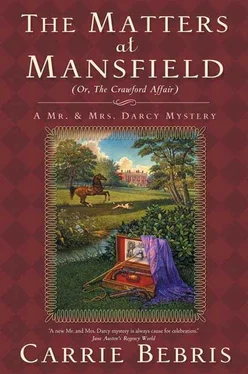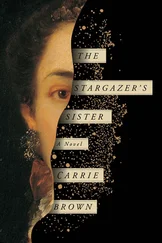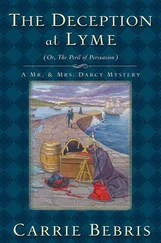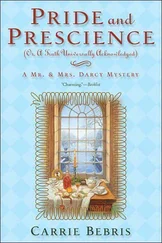Let other pens dwell on guilt and misery. I quit such odious subjects as soon as I can, impatient to restore everybody, not greatly in fault themselves, to tolerable comfort, and to have done with all the rest.
—
Mansfield Park
Lady Catherine was indeed furious about Anne’s second Scottish marriage, but her ire was short-lived. Upon reflection, and a hint from Mr. Archer, she came to consider herself fortunate that any respectable gentleman, let alone one so honorable as Colonel Fitzwilliam, still wanted her daughter. She approved the match, pending solemnization in a proper English church, and within hours convinced herself — and began putting word about — that a marriage between the cousins was entirely her idea. She even recanted her threat to withhold Anne’s trust income. By the day of their “real” (i.e., English) wedding, the couple’s happiness was increased by the knowledge that Anne carried no child of Henry’s, and therefore no reminders or questions to trouble their future. The church bells tolled a fresh start to their life together.
Though the law tacitly overlooked the duel between Colonel Fitzwilliam and Lord Sennex, it could not ignore the viscount’s abduction of Anne, nor the two duels that took place at Mansfield Park. Lord Sennex was charged with kidnapping and the murders of Henry Crawford and Neville Sennex. Before he could stand trial, however, his lordship suffered an apoplectic fit that truly did muddle his mind. He spent the remainder of his days in a world of the past where he was still a vital young man capable of defending his honor against all challenges, insensible to most of the present world around him.
While the Sennexes were responsible for both attacks on Mr. Crawford, it was Mrs. Norris and her propensities for inserting herself into everyone else’s affairs and making free with Sir Thomas’s bounty that led to Mr. Lautus’s demise. The agent’s assassination attempt against Mr. Crawford had an unanticipated witness when Mrs. Norris, walking home from a visit to Mansfield Park, decided to relieve a few favorite wild gooseberry bushes of their harvest. She heard the shot and, exalting in the belief that she was about to catch a poacher, came upon the scene as the agent set down his pistol to rifle Henry’s body. Observing Mr. Lautus from behind, she mistook him for Henry and approached him to demand an explanation of what he was doing. When he turned around, she realized her mistake. He instinctively grabbed the pistol he had just set down, but then, recalling that it was no longer loaded, looked past Mrs. Norris to the cocked but undischarged pistol that had flown from Henry’s hand when he fell.
Mrs. Norris, following his gaze and realizing his intent, reached the weapon first. She shot Mr. Lautus and fled, taking the incriminating pistol with her to dispose of elsewhere. In her terror and the gathering darkness she did not pause to retrieve the other pistol, nor, she claimed, did she realize Henry was still alive. When only one body was found, and it was mistaken for Mr. Crawford, Mrs. Norris thought the man she had shot yet lived and lay in wait to finish her off. She dared not reveal what she knew. Upon Henry’s unexpected return from the dead, she realized she was indeed a murderess after all and tried to dispose of the gun in a location wholly unconnected to her.
Mrs. Norris’s involvement in Mr. Lautus’s death was deemed by Sir Thomas to be an act of self-defense. But the incident so haunted her — or at least, so she told her sister — constantly — that she persuaded herself that only her removal to another country (“preferably one with an agreeable climate, such as Italy”) could quell her unease. Sir Thomas responded favorably to her none-too-subtle hints that he ought to finance said relocation, but only on the condition that she take Maria with her. To the relief of all those left behind, they departed forthwith for the Continent, where living together in exile became mutual punishment for aunt and niece.
Meg continued her employment at the Ox and Bull, her amiable nature helping to draw even more customers, which in turn led to the addition of yet another wing to the sprawling structure. Among the inn’s frequent patrons was Mr. Rushworth. Being sympathetic to the burdens of living with an elderly and oft-times difficult parent, Meg encouraged Mr. Rushworth to dine at the inn whenever business brought him near the village, upon which occasions she distinguished herself as the first person in his life to patiently listen to him. Though Mr. Rushworth had no difficulty obtaining a divorce from Maria, it was nevertheless a protracted process, and during the interval he found increasingly frequent cause to pass through the village, particularly at mealtime.
Eventually, after years of believing herself a sailor’s wife, Meg’s ship came in: She married Mr. Rushworth. What to all the world might seem a highly improbable alliance between a lively but poor girl and a wealthy but proud gentleman was in fact the most sensible match imaginable to the two parties most concerned. Mr. Rushworth had experienced enough of high-born debutantes; what Meg lacked in pedigree and education was more than compensated for by her common sense, unselfish nature, and appreciation for the gift of his regard. For Meg’s part, Mr. Rushworth might not be sharp or witty, but he was steadfast and forthright, and she had experienced enough of charming, silver-tongued gentlemen. Theirs was a felicitous marriage, each valuing in the other the traits so opposite those of their previous spouses.
The dowager Mrs. Rushworth vehemently objected, of course, to Meg’s common origins. But her son was resolute, and after the marriage, the mother’s continued observation of her new daughter-in-law’s prudence, loyalty, and genuine solicitude toward her son eventually won her over. Meg was everything Maria Bertram was not, and in the end fulfilled her domestic duties more capably and faithfully than her predecessor ever had.
“My good qualities are under your protection, and you are to exaggerate them as much as possible.”
—
Elizabeth to Darcy, Pride and Prejudice
Mr. and Mrs. Darcy returned home from their Mansfield misadventure to a joyful reunion with their daughter. They had missed her in the weeks of their absence, and now, free of the confining inn and its confining company, indulged in long walks in Pemberley’s gardens with Lily-Anne and rambles through its woods with each other as autumn arrived to paint the landscape. Within doors, Mama and Papa spoiled Lily-Anne quite shamelessly, and were rewarded by the sight of not one, but two teeth every time she smiled.
They had been home little more than a fortnight when Darcy surprised Elizabeth one evening with a parcel. He entered her dressing room and offered it to her with a mysterious air.
She set aside her needlework. “What is this?”
“A present.”
“Whatever for?”
“Do I require a reason?”
“A dutiful husband never requires a reason.” She accepted the parcel and motioned for him to sit beside her. “In fact, perhaps you ought to impart that advice to Colonel Fitzwilliam to ensure his domestic felicity.”
“I doubt he needs counsel from me. He and Anne seem well in the way of happiness, despite the precarious path that brought them to it.”
She thought of Anne, and of her sister Kitty, whose own path to marital happiness had not been smooth. And of Darcy’s sister, Georgiana, whose destination had yet to be determined but who, under the influence of Mr. Wickham, had almost taken a fatal misstep along the way. “It seems that many a proper young lady must negotiate a precarious path to happiness, past the bounders and Lady Catherines in their lives.”
Читать дальше












